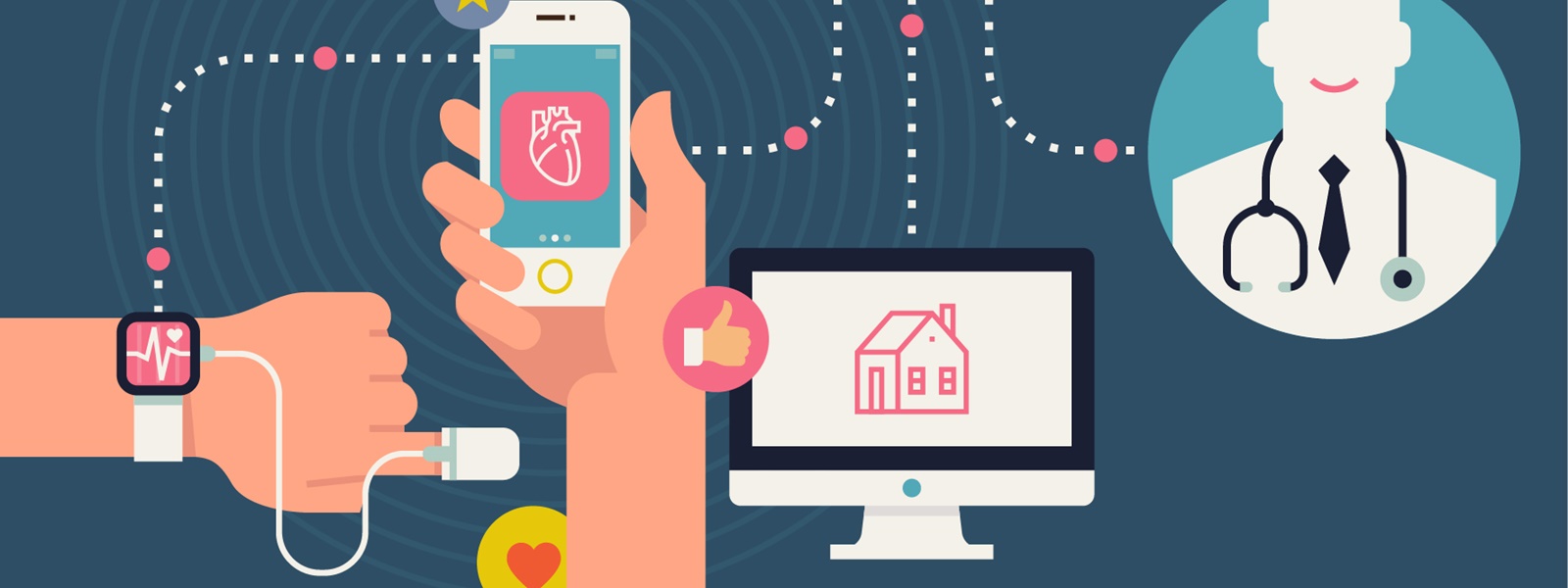Strathclyde People 2018
Imagine using information and communication technologies to assist the health and wellbeing of people and combat challenges for healthcare providers across the globe. At the University of Strathclyde, we’re working hard to turn that aspiration into a reality.
The use of modern technologies and digital services is not only changing the way we communicate, they also offer us more innovative ways for monitoring our health and wellbeing. Digital health and the use of mobile and wearable technologies such as smart phones, smart watches, and activity trackers, will empower us to manage and improve our own and our family’s health and care environments, leading to greater independence and improved health outcomes. As one of the UK’s top universities for research intensity – and recognised as a leading technological university – we’re at the forefront of these advances, but there’s still more to be done.
Our aim? To develop digital health solutions in support of the National Health Service (NHS) and other global healthcare providers that will enable more personalised medicine, moving us away from the one-size-fits-all approach, and customising healthcare to the individuals’ needs. The only way we can do that is through funding – for both top researchers and the technology itself. Here’s what we hope to achieve.
Cancer and young people
Just 24 hours after you’ve read this article, seven young adults in the UK will have been diagnosed with cancer. During and after treatment, they may experience distressing symptoms such as loss of appetite, fatigue, vomiting, pain, hair loss, and more. These symptoms can lead to mental health issues, and feelings of isolation.
Digital health interventions have the potential to significantly impact the quality, safety, efficiency and overall experience of healthcare provided. Particularly wearable technologies, which collect health-related data directly from the patient, and electronic questionnaires, which ask patients how they feel about their health and quality of life.
Our solution
Through digital health, we want to influence a new model of healthcare, where individual patient-driven data is central – not just the illness. Our unique study will provide opportunities for greater individualised care of young adults with cancer, leading to improvements in quality of life and empowering them to take greater control of their care.
Respiratory disease
In the next five minutes, someone in Scotland will die of lung disease and another five will be diagnosed with the condition. Although much is being done to begin to address its causes, little is being done to care for people with these diseases in ways that lets them stay at home for longer, or to identify the early exacerbation of these conditions – such as infection.
Our solution
Drawing on expertise in respiratory disease, researchers will investigate digital health solutions that could monitor vital signs, such as temperature and breathing rate and depth. This could highlight deteriorating symptoms and prompt medical intervention before it becomes a serious clinical issue with long-term impacts. Most importantly, the non-invasive technology could improve mortality rates of Scotland’s third biggest killer: lung disease.
Dementia
Over 850,000 people in the UK suffer from dementia. For them, hospital admission can be distressing and disorientating. It’s associated with a decline in cognitive and functional ability, increasing the risk of mortality. By offering adequate support at home, we could prevent admissions by up to 22% – letting those with dementia live at home and potentially save healthcare providers and social services millions of pounds.
How? To prevent crisis points that lead to hospital or care home institutionalisation – such as infections advancing to serious stages, or carers unable to cope with hostile behaviour. The first step is to develop a simple, low-cost monitoring system that helps to predict crisis points early on.
Our solution
We aim to create and test a number of technologies – including applications, wearable devices, and audio-visual systems – to measure predictors of crisis points. Once identified, we can prevent escalation.
Diabetes
A diabetes epidemic is underway. The rising prevalence of the disease, along with the associated burden to healthcare providers, makes it one of the most challenging health problems of the 21st century.
To assist the management of diabetes and improve the overall health of those with the condition, clinical guidelines recommend an active lifestyle. However, health professionals find promoting physical activity challenging, and it remains an underutilised component of diabetes care.
Our solution
With our research, we’ll provide a unique opportunity to investigate how to use patient generated data to support the promotion of healthier lifestyles. The aim is to bridge the gap between research and practice by exploring how to deliver the right content at the right time, ensuring those with diabetes effectively take control of their own health.
Multimorbidity
Multimorbidity is the existence of two or more long-term conditions. It accounts for over 50% of GP consultations, 75% of prescriptions and almost 60% of hospital admissions. With an ever-increasing ageing population, these numbers are set to rise considerably over the next decade.
Our solution
To reduce the negative impact on patients and services, self-management is key. But this can be challenging for patients who have to distinguish between symptoms of various conditions, coordinate health information from different providers, and make decisions about priorities. Fortunately, with easy-to-use electronic patient-reported questionnaires, we can yield information to improve communication between clinicians and optimise care plans – motivating patients to better monitor their self-care progress.
By working in partnership with patients, carers, health and social care professionals and technologists, we’ll develop remote monitoring systems that can make a positive impact on the lives of people with multimorbidity, improving their quality of life and keeping them safe and well at home for as long as possible.
We need your support
By donating, you won’t just be supporting our research. You’ll be supporting people in need, and healthcare providers. Together, we can ensure digital health improves the lives of patients across the world, some of whom might be people close to you. If you’d like to donate – or even just find out more – please email alumni@strath.ac.uk

